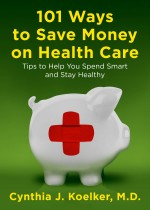
- Image via Wikipedia
As long as we’re all spending other people’s money, health care spending will never decrease.
Why bother to ask the price of a CAT scan if you’re not the one paying? So what if an MRI costs $4,000? I need it, don’t I? But would you still need it if you had to pay the whole fee? Is it worth $4,000 to you? Perhaps $500? Maybe fifty bucks?
When your tire tread runs thin you weigh the risk and inconvenience of a blow-out versus the cost of new tires. Maybe you make the right choice, maybe you don’t.
Of course, the stakes may be higher with health care – sometimes life or death. And yet, when people have no personal accountability for their health care expenses, they simply don’t care how much is spent on their behalf. None of us cares that much about saving America money.
Anyone who’s worked in a facility that accepts welfare clients knows this to be true. A Medicaid card is the golden ticket to irresponsibility. Or is it? Surely you should take your sick child to the doctor without having to worry about the cost, shouldn’t you?
Do we, as Americans, dare ask the poverty-stricken to pay $10 ($5? $1?) every time they come to the doctor? Should we give them a little extra cash in case they need medical care? But what if they spend the extra cash on milk or food, or cigarettes, or cell phones?
Welfare is only one example. “Cadillac” insurance plans are another. Anytime people pay nothing, they have no stake in the finances.
What we do care about is saving ourselves money. When it comes to how we spend our own money, suddenly we’re a lot choosier. There’s nothing like parting with cold, hard cash to make a person economize.
Therefore, using human nature as our model, everybody must pay something for health care – welfare recipients, public employees, veterans, the employed, the unemployed – everyone. This would immediately impose a degree of self-rationing (which most Americans would argue is preferable to governmental rationing). If it’s not worth a dollar to see a doctor, then don’t go. People are accustomed to paying for groceries, for gasoline, for transportation. It’s not too much to expect them to pay something for health care.
And people need to know what they’re not paying for as well. But that’s tomorrow’s blog.
© Cynthia J Koelker, MD – All Rights reserved
Related articles
- U.S. health reforms cause bump in spending: report (reuters.com)
- You: U.S. healthcare costs projected to continue to climb (latimes.com)
- The Effects of ObamaCare – A Pre-Implementation Report (economicnoise.com)


